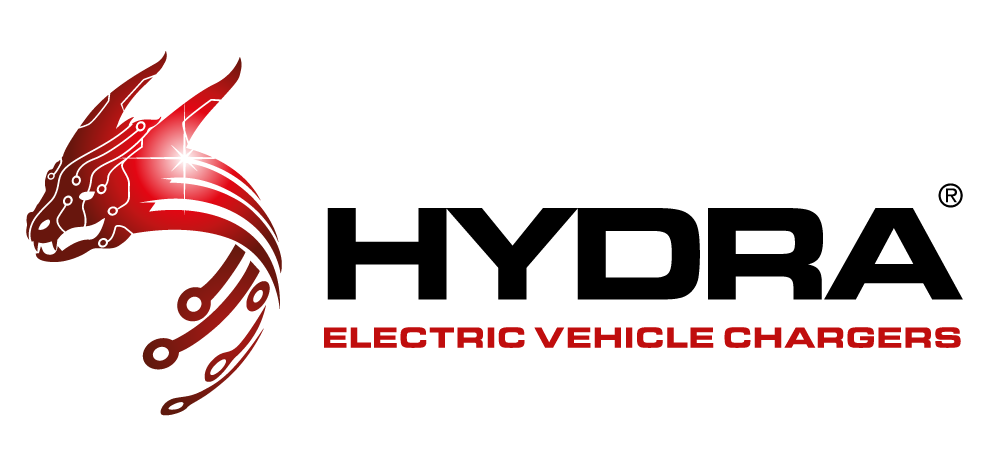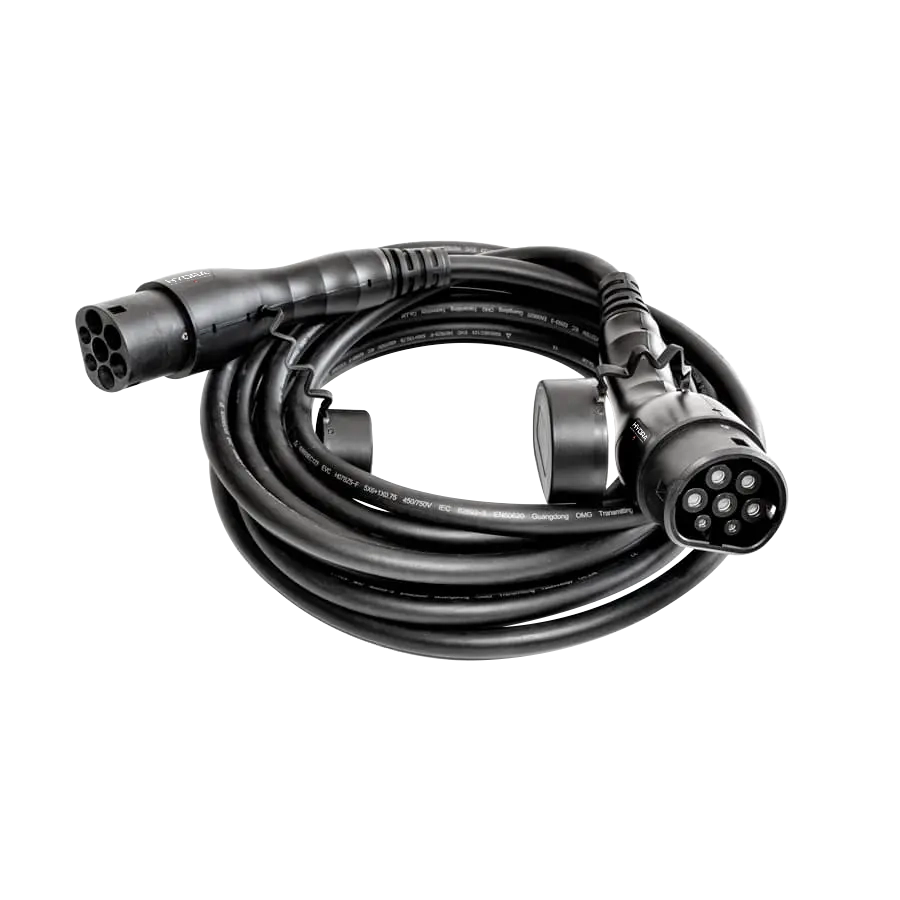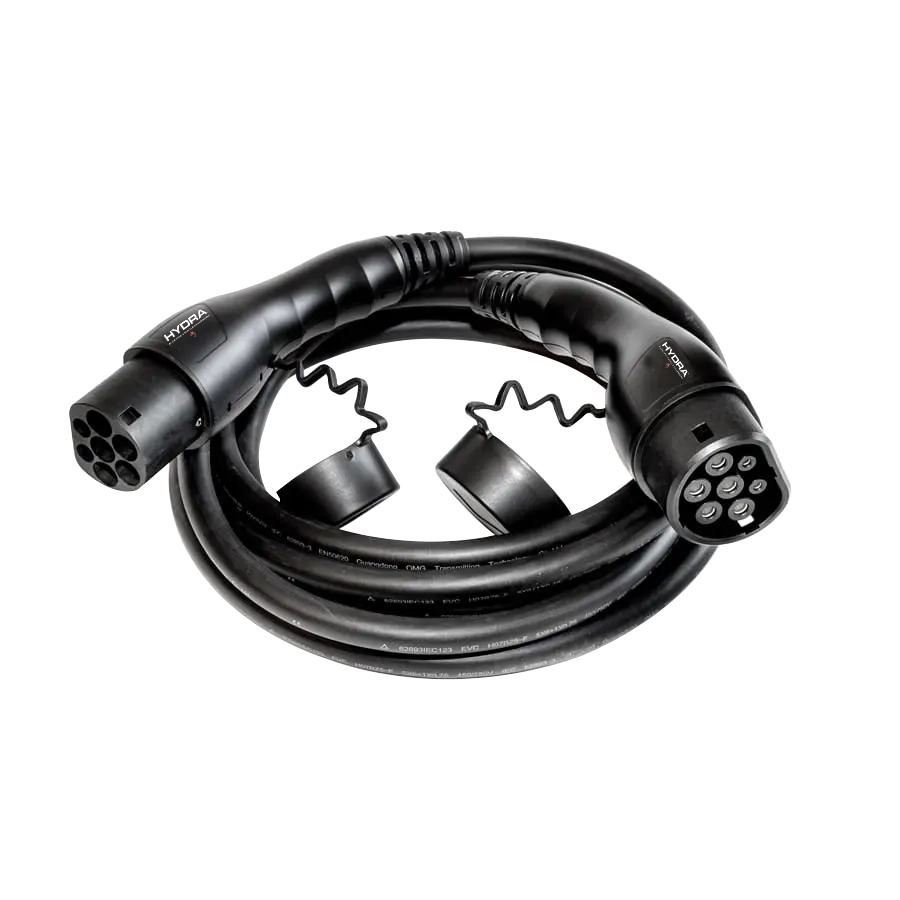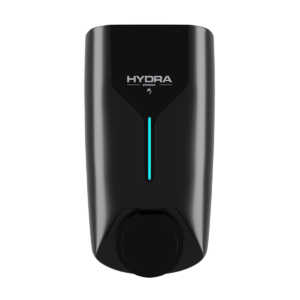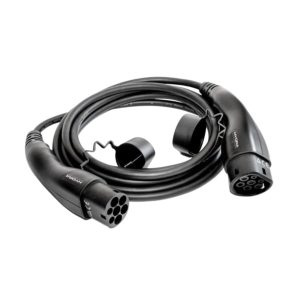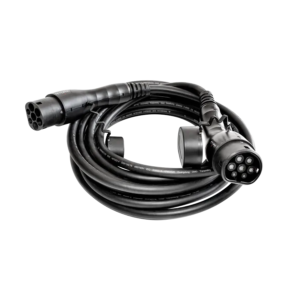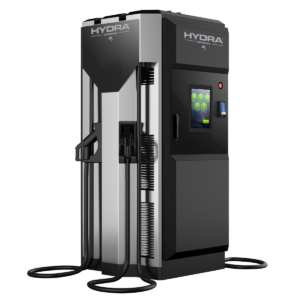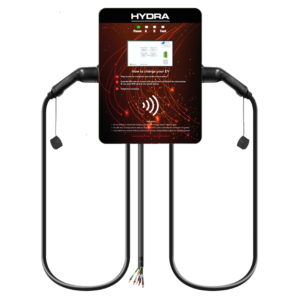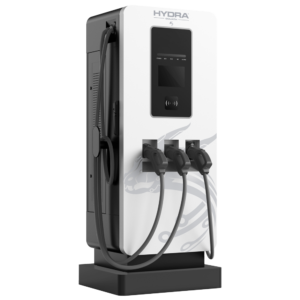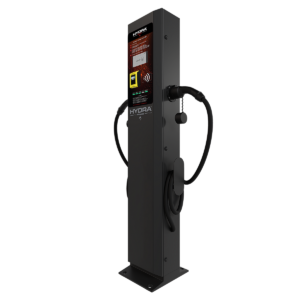- Home
- Products
- Charging Accessories
- Type 2 EV Charging Cable 22kW
Type 2 EV Charging Cable 22kW
High quality and durable EV charging cable for use with single-phase EV chargers up to 22kW output (suitable for home and commercial charging installations)
Our three-phase EV Charging Cables allow you to charge any electric vehicle with a Type2 socket from a socket-only, three-phase AC charge point, similar to those used at commercial or workplace locations and other public charging points.
These charging cables are available in different lengths from 5m up to 20m. They are designed to be used for chargepoints up to 32Amp and 22kW charging output. They can also be used safely with a single-phase, 7kW home chargepoint.
Available in 5m, 10m, 15m and 20m lengths
NB: Charging cables MUST NOT be used as an extension to an existing charging cable whether by way of an adapter or other socket. The cable can only be used when connected directly to the socket of the chargepoint and the EV.
Type 2, Single Phase
- Phase: Three Phase
- Power Level: Up to 22 kW
- Rated Current: 32 Amp
- Rated Voltage: 440VAC
- Ingress Protection: IP54
- Rating Lifespan: 10,000 insertions
- Temperature: -30c to +50c
- Guarantee: 2 Years
- Approvals: CE, CB & TUV Approved
Call for Price




-
Residential Charging
ZODIAC 7kW EV charger
-
Commercial Charging
ZODIAC 22kW EV Charger
-
Charging Accessories
Type 2 EV Charging Cable 7kW
-
Charging Accessories
Type 2 EV Charging Cable 22kW
-
Commercial Charging
MEDUSA RAPID EV CHARGING STATION
-
Commercial Charging
Jovi Dual EV charger
-
Commercial Charging
GOLIATH RAPID EV Charging Station
-
Commercial Charging
GENESIS dual EV Charger
FAQ
Our domestic Hydra Zodiac EV charger is priced as indicated (+VAT and installation). Almost all of our commercial EV chargers are configurable to the customer’s requirements and the cost will also be influenced by the type and location of the installation, power input and charging output required. Therefore we will provide a quote upon request.
We work with a nationwide network of Hydra approved and OZEV registered installers for both domestic and commercial EV chargers. We are able to recommend a suitable installer for your location and type of installation. We can also communicate with your chosen installation team to make sure they have everything you need to carry out a smooth installation. Every installation will be subject to a site survey by a qualified installer.
No, only fully qualified electricians should carry out the installation of EV charging equipment. We also advise that you should only choose OZEV approved installers. We work with a nationwide network of Hydra approved and OZEV registered installers.
In most instances no planning permission is required to install an EV chargepoint in a domestic or residential location, but it is always worth checking with your Local Council Planning Department to ensure there are no local restrictions in place.
See Planning Portal for more information: https://www.planningportal.co.uk/permission/common-projects/electrics/electric-vehicle-charging-points
If you live in rented accommodation or rent a commercial property you should always gain permission of the Landlord and/or leaseholder before installing EV charging equipment.
Almost all private residential property - and an amount of commercial properties such as high street shops and offices - operate on the standard single-phase 240v electrical supply. If this is the case you will be limited to using a 7kW charger such as the Hydra Zodiac. However, larger shops, offices, industrial premises and warehouses are linked to a three-phase 400v supply which will allow for the installation and use of a higher powered EV charger.
No, all Hydra EV chargers draw a minimal 2W on standby. They are also protected with multiple built-in safety features which mean it is safe to leave the EV charger unattended for prolonged use.
All Hydra EV chargers can charge a range of EVs from private cars to electric mopeds and commercial vans to HGV delivery trucks. Anything that takes a regular Type 2 charger can be connected. For commercial and public installations access to the charger can be activated by the use of a contactless RFID card thus preventing unauthorised use.
